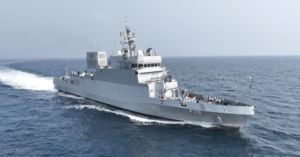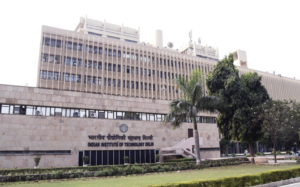Greater Noida (Hridaya Mohan): When Pakistan’s Prime Minister Shehbaz Sharif landed in Jeddah, he was not welcomed by a red carpet alone. The thunder of Saudi F-15 fighter jets saluting his arrival sent a strong geopolitical message. Within hours, Riyadh and Islamabad signed and a nuclear security agreement after a NATO-style defence cooperation pact few days back—a development that has triggered fresh debate across South Asia and the Middle East.
This is not just another defence agreement. It has the potential to reshape security dynamics across West Asia, impact regional power equations, and create new challenges for India, Iran and Israel.
The Core of the Saudi-Pakistan Defence Deal
The deal goes beyond traditional military cooperation. It includes:
- Treating any act of aggression against one as an act against both.
- Joint military exercises to improve interoperability.
- Defence technology and arms sharing between Riyadh and Islamabad.
- Counter-terrorism cooperation at intelligence and operational levels.
- Missile defence collaboration in response to regional threats.
- Nuclear security management, a clause that makes this agreement highly sensitive.
For Pakistan, the deal enhances its strategic relevance at a time when it faces an economic crisis and declining Western influence. For Saudi Arabia, it provides access to Pakistan’s experienced military and its unique status as the only Muslim-majority country with nuclear weapons.
Why Saudi Arabia Is Strengthening Defence Ties
Saudi Arabia’s strategy is shaped by its Vision 2030 plan, which aims to diversify its economy beyond oil. But while its economic future looks ambitious, its security environment remains uncertain.
- Yemen conflict continues to drain resources and expose vulnerabilities.
- Iran’s growing influence in the region is seen as a persistent challenge.
- US strategic retrenchment in West Asia has forced Riyadh to diversify security partners.
By deepening ties with Pakistan, Riyadh is building a parallel security framework. It sends a signal that while rapprochement with Iran may be underway; Saudi Arabia is keeping alternatives ready.
Why Iran and Israel Are Uneasy?
The impact of the Saudi-Pakistan defence pact is being closely felt in Tehran and Tel Aviv.
Iran’s worry: After cautiously improving relations with Riyadh through Chinese mediation, Iran sees this deal as undermining trust. Tehran fears Saudi Arabia might use Pakistan as a counterweight, especially given Pakistan’s historical tilt towards the Sunni bloc.
Israel’s concern: Israel has always opposed nuclear proliferation. The idea of Pakistan—a nuclear-armed Muslim country—formally cooperating with Saudi Arabia raises alarms. Tel Aviv views this as a potential long-term security threat, especially if it leads to nuclear technology diffusion.
Both Iran and Israel understand that this deal is not merely symbolic. It alters the region’s security balance.
The Silence of the US and China
Perhaps the most telling response is the silence of Washington and Beijing.
The US position: Once a major supporter of Pakistan, America has drifted away from Islamabad. Yet it cannot afford to alienate Riyadh, its key Gulf partner. Hence, Washington has avoided criticism, opting for quiet observation.
The Chinese approach: Beijing is Pakistan’s all-weather ally and has invested heavily in Saudi Arabia as well. The China-Pakistan Economic Corridor (CPEC) and Saudi investment projects give Beijing deep stakes in both capitals. For China, the deal aligns with its long-term interests, but Beijing prefers subtle diplomacy over loud approval.
Their silence shows how geopolitically sensitive and delicate this agreement is.
Implications for India
For India, the Saudi-Pakistan pact presents both challenges and opportunities.
Strategic Concerns: Pakistan could gain enhanced military capabilities, financial support and international legitimacy through Saudi backing. This may embolden Islamabad in its regional posturing.
Diplomatic Pressure: India has forged strong ties with Saudi Arabia in recent years. Energy supplies, investments, cooperation in forums such as the G-20 and the significant contribution of the Indian community in the Gulf country are the foundation of these ties. Bilateral trade between India and Saudi Arabia has reached nearly $42 billion and the Saudi prince has promised to invest $100 billion in India. All these could face subtle counter-pressure.
Balancing Act: India has, in recent years, built closer ties with Saudi Arabia, UAE and other Gulf states. It must now ensure that this defence deal does not reduce its own strategic space.
Experts suggest India should go beyond transactional ties—like oil trade—and build deeper defence, technology and intelligence cooperation with Riyadh to remain relevant.
A Shifting Security Order
This defence pact reflects a broader shift in West Asia:
- From US dependence to multi-polar partnerships.
- From oil-driven relations to security-driven alignments.
- From bilateral deals to cross-regional coalitions involving South Asia.
The Saudi-Pakistan deal is a reminder that geopolitics is fluid. Alliances are reshaping faster than ever, driven by shifting power balances and mutual insecurities.
Future Fault-lines in West Asia
From NATO-style defence pledge to the roar of F-15 fighter jets in Jeddah skies to the signing of a nuclear security pact, the Saudi-Pakistan defence agreement marks a turning point in regional geopolitics. Its implications stretch far beyond the Gulf, reaching South Asia and even Israel.
For Iran, it is a warning sign. For Israel, it is a red flag. For the US and China, it is a delicate balancing act. But for India, it is both a challenge and an opportunity.
The critical question is: Will this deal bring greater stability to the Middle East—or plant the seeds of new instability? The answer will depend on how countries like India adapt, engage and redefine their role in a rapidly transforming West Asia.
About the Author

Mr. Hridaya Mohan (hridayamohan@yahoo.co.in) is a regular Columnist with a renowned Indian daily “The Hitavada”, “Bharat Neeti Media” and some other newspapers / magazines internationally. He lived and worked in Beijing for 6 long years as Chief Representative (China & Mongolia), SAIL. Recipient of “Sir M Visvesvaraya Gold Medal”for one of his papers, “Benchmarking of Maintenance Practices in Steel Industry” from The Institution of Engineers (India), he was awarded with “Scroll of Honour” for the excellent contributions to Engineering fraternity from IE(I), Bhilai, “Jawahar Award” for leadership excellence in SAIL and “Supply Chain Leader – 2017” award from IIMM.









